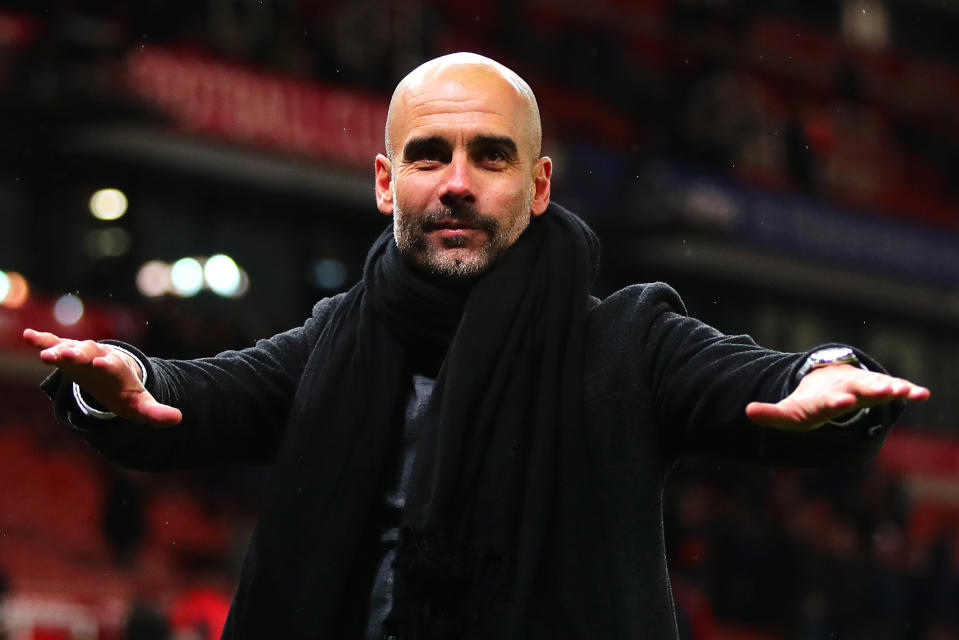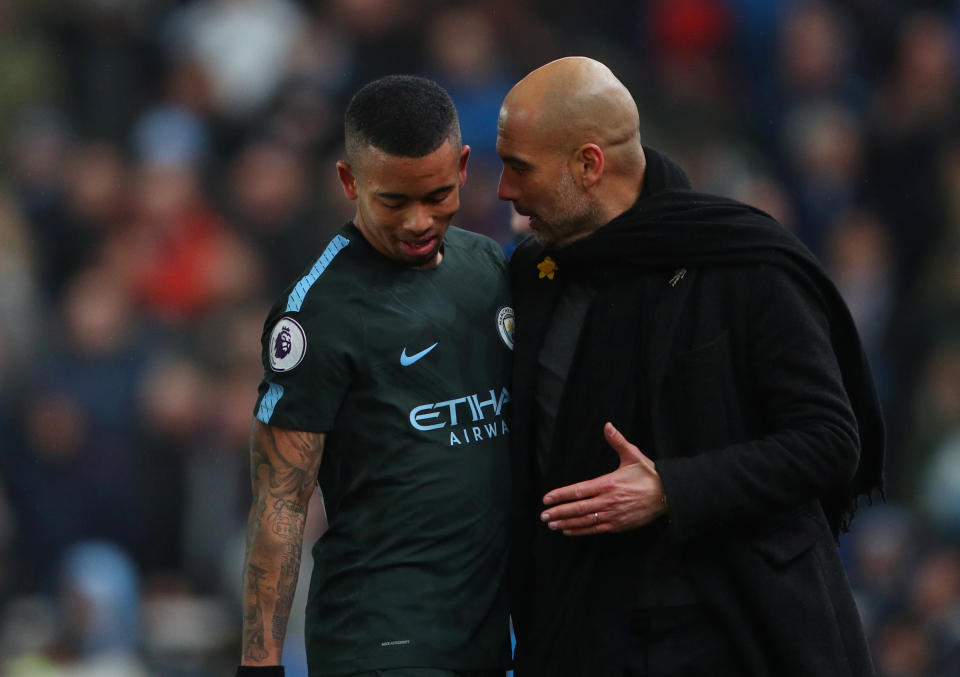Did Manchester City pay under the odds in some of their £365M spending spree?

Manchester City have spent a lot of money in Pep Guardiola’s reign. Lest anyone forget, Jose Mourinho likes to point it out, quite regularly, with the suggestion that Manchester United have not paid out as much and with the recent addition to his argument that Guardiola started with a stronger base and a better squad because of City’s better recent “heritage”.
To be precise, City have spent £365 million under Guardiola, though that figure could be higher when add-ons are triggered and would have been greater had they signed Riyad Mahrez when they surely did not need to in January.
The sums are sizeable. The league table may suggest it is money well spent, at least by current standards. Go on a case-by-case basis, however, and City can claim that they been cost-effective at times, unearthing a couple of bargains and that some players who initially appeared overpriced may actually have been underpriced.
READ MORE: Gossip – Man Utd ‘fear Sanchez is the new Di Maria’ and more
READ MORE: Mourinho and Pogba’s feud takes another bizarre twist
The counter argument is that the opposite also applies: a couple who might have looked cheap at the time only proved a good deal for the selling clubs. Performances have shifted perceptions.
Starting with a couple of negatives, which came at the beginning of Guardiola’s tenure: Nolito was a regular in Spain’s Euro 2016 side and Claudio Bravo had been Barcelona’s first-choice goalkeeper. In theory, City did well to get them for £13.8 million and £15.4 million respectively. In reality, they lost £6 million on the winger when he went to Sevilla. The goalkeeper’s inability to save shots rendered him a disaster last season; whenever he leaves, that outlay will not be recouped.
Yet another goalkeeper and winger appeared examples of City overspending and instead offered proof of shrewdness. Ederson had only one season in the Benfica team. Eyebrows were raised inside the Etihad Stadium when Guardiola identified a man who became one of the three costliest goalkeepers in football history. Now, with the Brazilian’s shot-stopping ability evident and his distribution essential to Guardiola’s passing game, his £34.9 million fee and age, 24, amounts to an excellent investment.
When Leroy Sane had a slow start, his £37 million price looked questionable. Now, in an age when Neymar, Kylian Mbappe, Ousmane Dembele and Philippe Coutinho have redefined attacking players’ retail value and with the 22-year-old German established as one of the most blistering wingers around, he looks worth at least twice as much.
Two more can join him in the bracket of bargains. Getting Gabriel Jesus for £27 million appeared a steal before the Brazilian even arrived: director of football Txiki Begiristain’s negotiating skills have rightly been questioned, but he excelled in the Jesus deal. Meanwhile, Oleksandr Zinchenko was signed as a development player. A £1.75 million acquisition has flourished after being converted to left-back. He was so cheap that City could scarcely lose.

Another would have appeared under-priced but for one factor: injuries. Players of Ilkay Gundogan’s class normally cost more than £20 million. Instead, an asterisk appeared to be applied to both the deal and any analysis of it, but the German has been terrific and fit this year, even if he is not in the strongest side. Neither is Bernardo Silva, another who has shown quality in bit-part roles. Few have the luxury of a £43 million back-up, but a 23-year-old Champions League semi-finalist hardly looks overpriced.
Not that Mourinho’s major gripe concerned attackers. “Manchester City buy the full-backs for the price of the strikers,” he said in December. City spent £120 million, plus add-ons. Those full-backs fall into three categories: the £26 million deputy Danilo seems overpriced, even by modern standards, the £49 million Benjamin Mendy looked potentially terrific but his five-game spell in the side before being injured is too small a sample size for a definitive verdict, and the £45 million Kyle Walker has added another dimension.
He has brought the pace and mobility that City lacked last season when their quartet of full-backs were all in their thirties. Walker is football’s most expensive ever right-back and he is not the world’s best; given his transformative effect on their tactics, however, he may be a case of paying over the odds being justified because of his impact on the collective.
And City have been defensive trailblazers, inflating the market as the positions became more of a priority. Liverpool’s £75 million move for Virgil van Dijk blew even City out of the market, but they have four of the six costliest defenders ever. Aymeric Laporte’s £57 million fee felt excessive for an uncapped player. He has been a substitute at times in his City career; five games, once again, is too few to produce clear conclusions. But like Mendy, he offers the promise of a decade’s service.
READ MORE: Root refuses to confirm England stars will open bowling
READ MORE: Malcom ready to leave Bordeaux and chase Bayern dream
So does John Stones. The Englishman’s £47 million price felt extortionate last season. He appeared a far more astute acquisition when he excelled in the first half of this season and less so in recent outings; judgments depend on when they are made.
Mourinho may alight on Stones, Danilo, Nolito and Bravo and, if he is harsh, Mendy and Laporte, in his quest to argue City have distorted the division by paying too much. The champions elect can cite Sane, Ederson, Gundogan, Zinchenko, Jesus and Walker to suggest they have invested wisely. It is too simplistic to say success is being purchased, and not just because of the impact of Guardiola’s coaching. But if it is, City can say some of it was bought when underpriced; even if, in some cases, it appeared overpriced at the time.

 Yahoo Sport
Yahoo Sport 






































